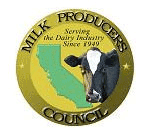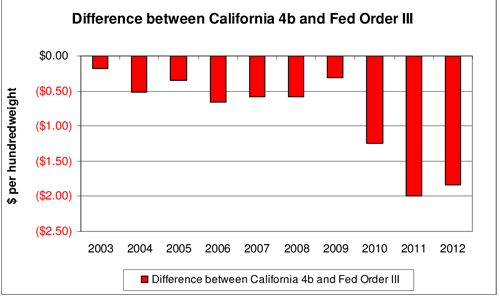Action, Not Just Words, Is What Dairy Families Need Right Now
Today, Milk Producers Council's General Manager Rob Vandenheuvel put out the following comments in response to a "Statement on Milk Pricing" published by the California Department of Food and Agriculture:

"As many California dairy families stood on the State Capitol steps this morning demanding a fair price for the milk they produce, the California Department of Food and Agriculture (CDFA), led by Secretary Karen Ross, put out an extremely disappointing Statement on Milk Pricing.' Over the past several years, California dairy farmers have expressed growing frustration over how CDFA establishes monthly prices for milk sold in the State. However, what was once just a frustration has now culminated into financial devastation, with scores of California dairies reportedly already in bankruptcy, and the rest in dire financial straits.
"The economic challenges that face dairy families in California and throughout the U.S. are well-documented. Dairy farms are being squeezed between record high feed costs and milk prices that have failed to cover those costs month-after-month, leaving the dairies swimming in losses. However, adding insult to injury in California, our Department of Food and Agriculture, which is tasked with establishing on-the-farm milk prices that are in a reasonable and sound economic relationship' with what comparable milk is being sold for around the country, has overseen more than two years of a steep discount in what a large portion of our milk is sold for in California. In other words, while the U.S. dairy industry has certainly been having a difficult time, Secretary Ross has seen fit to sit idly by as her State's dairy farmers go through utter devastation, with CDFA's own policies much to blame.
"Specifically, dairy farmers point to CDFA's pricing policies with regard to milk sold to California cheese manufacturers, which is where about 40-45 percent of the State's milk production is currently being sold. CDFA announces a monthly Class 4b' price, which applies to the California cheese manufacturers buying California milk. A similar system operates around the country, which is known as the Federal Milk Marketing Orders. That system includes a monthly Class III' price, which also applies to cheese manufacturers operating under that system and buying milk.
"The chart below shows the difference between the California Class 4b price and the Federal Order Class III price for the past ten years. While California's cheese manufacturers have long-enjoyed a state-sponsored discount on the milk the buy, the past three years have seen that discount blow up. .The difference outlined below represents about $375,000 in forgone revenue since January 2010 for an average dairy in California. Cumulatively, that's a state-sponsored discount awarded to California cheese manufacturers of more than $633,000,000, on the backs of the roughly 1,600 California dairies since January 2010.

"Instead of sending out a statement explaining her inaction, dairy families need Secretary Ross to announce a hearing immediately and change California's 4b monthly price to more closely follow the prices paid for comparable milk around the country. While CDFA's statement points out that Class 4b prices have risen from $13.56 to $17.50 per hundredweight between May and September 2012, it ignores the fact that the Federal Order Class III price during that same period rose from $15.23 to $19.00 per hundredweight.
"CDFA's statement also tries to justify this state-sponsored discount by speaking of the distance from California to the Northeast cheese markets. However, CDFA ignores the fact that cheese processors in Arizona, Oregon and Washington are regulated under the Federal Milk Marketing Order system and are paying these higher prices.
"Perhaps one of the most misleading parts of CDFA's statement is the reference to high Class 1 prices. First off, the Class 1 price is applicable to those who buy milk to sell it as a fluid product (whole, lowfat, skim, etc.). The November 2012 price of $23.17 per hundredweight cited by CDFA represents $2.00 per gallon paid to the farmer. Is CDFA arguing that paying the dairymen $2.00 per gallon is too high while it sells on the store shelves for $3.50-$4.00 per gallon? Further, California dairy farmers have not asked to raise the Class 1 price; we have continually focused on the Class 4b price, which only applies to California cheese manufacturers, not fluid milk bottlers. It's difficult to understand why CDFA would attempt to confuse the public by turning their attention to a pricing formula (Class 1) that isn't even being challenged by either the dairy farmers or the bottlers buying Class 1 milk.
"Finally, it is interesting to read CDFA's comments on some milk buyers' announcing that they will be paying an additional premium for the milk they buy. Apparently even the buyers of our milk are starting to be embarrassed by how much of a discount CDFA is lavishing upon them. While dairy farmers appreciate additional premiums for the milk they produce, that unofficial announcement' by some milk buyers' in no way relieves CDFA from their legal responsibility to maintain prices in California that are in a reasonable and sound economic relationship' with what comparable milk is sold for around the country.
"What is needed is action, not a statement. California's dairy families need results, not excuses."
10.18.2012